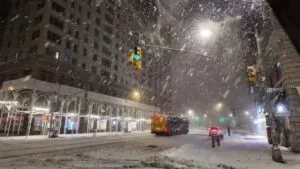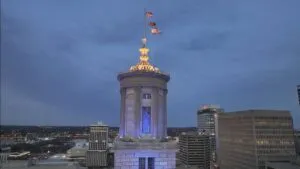June 19 might fall on a Thursday in 2025, but it’s no ordinary Thursday, and it hasn’t been for generations. Juneteenth, now a recognized federal holiday, carries with it a deep current of history, resilience, and hope.
It’s the kind of day that invites reflection without demanding it, celebration without requiring fireworks. At its heart, it marks a promise fulfilled, late, but not forgotten.
If you’ve heard of Juneteenth but aren’t quite sure what it’s really about, or if you’ve celebrated it for years and want to go deeper, you’re not alone. And you’re in the right place.
Let’s walk through what Juneteenth means, how it became a federal holiday, what’s happening in 2025, and why it matters to everyone, not just African Americans.
Table of Contents
ToggleWhere Juneteenth Comes From
On June 19, 1865, Union Major General Gordon Granger stepped onto the shores of Galveston, Texas, with a group of federal troops. The Civil War had ended, but slavery still lingered in some corners of the country – especially in Texas, where news traveled slowly and enforcement was even slower.
General Granger issued General Order No. 3, declaring that “all slaves are free.” That order made real the promise of the Emancipation Proclamation, which had technically been in effect since January 1, 1863. But until the Union had the power to enforce it, enslaved people in Texas remained in bondage.
That’s why Juneteenth – short for “June Nineteenth” – marks a specific, crucial moment. It’s not just about a proclamation. It’s about when freedom was finally enforced.
From “Jubilee Day” to Emancipation Park

The first Juneteenth celebrations kicked off in 1866. In Texas, Black communities held parades, hosted barbecues, gathered for church services, and celebrated with music and games. Over time, it became a tradition.
In 1872, a group of Black ministers and businessmen in Houston pooled $1,000 and bought 10 acres of land to create Emancipation Park – a space specifically for Juneteenth gatherings. That park still exists today and remains a focal point for celebrations.
Even when the broader country wasn’t paying attention, Black communities were preserving the day’s importance.
A Long Road to National Recognition
It wasn’t until 1980 that Juneteenth became an official state holiday – again, in Texas. Credit goes to state legislator Al Edwards, who championed the cause.
From there, momentum built slowly. Other states began marking the day in symbolic ways, but not all gave it the same weight.
The Push Toward a Federal Holiday

For decades, activists pressed for national recognition. Opal Lee, a retired teacher from Fort Worth, played a huge role. Beginning in her 80s, she walked 2.5 miles every year, symbolizing the 2.5 years it took for news of freedom to reach Texas.
In 2016, at age 89, she walked from Texas to Washington, D.C., to push for Juneteenth as a federal holiday.
She succeeded.
On June 17, 2021, President Joe Biden signed the Juneteenth National Independence Day Act. With that signature, Juneteenth became the 11th official federal holiday – and the first new one since Martin Luther King Jr. Day in 1983.
156 years later, Juneteenth is officially a federal holiday.pic.twitter.com/WcswqpTRIw
— The Recount (@therecount) June 18, 2021
Where States Stand
As of 2024, 27 states and D.C. have followed the federal government’s lead by giving state employees paid time off for Juneteenth. Here’s a quick look at some of those states:
| State | First Official Observance | Paid Holiday Adopted |
| Texas | 1939 | 1980 |
| California | 2003 | 2022 |
| Illinois | 2003 | 2021 |
| New York | 2004 | 2020 |
| Virginia | 2007 | 2020 |
| Minnesota | 1996 | 2023 |
| Vermont | 2007 | 2024 |
Even with this growing recognition, not every state has made it a paid holiday. But the tide is turning.
How Americans Celebrate Juneteenth

Juneteenth is one of the most community-centered holidays on the calendar. It’s celebratory, but also reflective. And it shows up differently in different places.
Some of the most common events include:
- Parades and Festivals – Featuring marching bands, local artists, and performers.
- Church Services – Often with readings of the Emancipation Proclamation or personal reflections.
- Picnics and Cookouts – With traditional dishes like barbecue, black-eyed peas, and red velvet cake.
- Educational Panels – Covering everything from African American history to voter rights.
- Beauty Pageants – Like “Miss Juneteenth”, which highlight talent and leadership among young Black women.
- Art Exhibits and Reenactments – Celebrating both historical milestones and contemporary voices.
View this post on Instagram
And then there’s the food. Red drinks – like strawberry soda or hibiscus tea – are staples. So are desserts and dishes that trace their roots to African American cuisine. The color red is symbolic. For many, it represents strength, sacrifice, and resilience.
Music is central, too. “Lift Every Voice and Sing,” often called the Black National Anthem, is sung at many events.
If you’re planning a Juneteenth event or creating educational material, having strong visuals can make your message land better. Platforms like Depositphotos offer high-quality, culturally sensitive imagery that can help convey the spirit of the holiday without relying on stereotypes.
Juneteenth 2025 & What’s Happening This Year
View this post on Instagram
In 2025, Juneteenth falls on Thursday, June 19. Because it’s a federal holiday:
- The U.S. Postal Service will be closed.
- Banks and stock markets will take the day off.
- Federal buildings and non-essential government offices will be closed.
- Most schools will already be out for summer, but those in session will likely observe closures.
Many private employers now offer the day off as well – some paid, some optional – especially in major metro areas.
Canceled Events and New Plans
While celebrations are still widespread, 2025 has brought some shifts.
A few cities have canceled Juneteenth parades or scaled back celebrations:
- Indianapolis, Indiana canceled its traditional parade, citing logistical issues. A festival will be held instead on June 21 at the State Fairgrounds.
- Bend, Oregon and Plano, Illinois also canceled public events. Safety concerns and local feedback were key reasons.
There’s also political tension in the air. A January 2025 executive order from President Donald Trump banned diversity, equity, and inclusion (DEI) programs in federal agencies.
While not directly aimed at Juneteenth, the order has made some event organizers cautious about government funding and public messaging.
That said, Trump did issue a proclamation during Black History Month earlier in the year – so there’s still federal-level recognition of the day’s cultural importance.
Where Celebrations Are Still Going Strong
Many communities aren’t slowing down. Here are just a few highlights:
- Washington, D.C.: The National Juneteenth Parade and Music Festival will return on June 19, with performances, speakers, and vendors.
- Brooklyn, NYC: The Brooklyn Juneteenth Festival takes place June 21 at the Brooklyn Museum, offering food trucks, cultural booths, and live music.
- Pleasant Hill, California: A June 19 celebration at City Hall will include food trucks, music, and community booths.
- National Museum of African American History and Culture: Expect extended hours and exclusive programming in Washington, D.C., on the day itself.
Local calendars from cities like Houston, Atlanta, and Chicago are packed with Juneteenth events – some stretching across the entire week.
Why Juneteenth Matters for Everyone

Juneteenth isn’t just about slavery’s end. It’s about what came after, too. Reconstruction, Jim Crow laws, the civil rights movement, and the ongoing fight for racial justice all stem from the same core struggle: the pursuit of true freedom.
The holiday asks Americans to reckon with the country’s past and to look squarely at what kind of future we want to build.
Whether you’re African American, white, Asian, Latino, Native American – whatever your background – Juneteenth is an invitation to reflect on the meaning of freedom. Who has it, who’s still fighting for it, and how we all play a role.
A Day to Participate, Not Just Observe
There’s no one “right” way to mark Juneteenth. You could:
- Attend a local event or parade.
- Read historical documents like the Emancipation Proclamation.
- Watch a documentary about the Civil War or Reconstruction.
- Support Black-owned businesses.
- Talk to your kids about what Juneteenth means.
- Volunteer at a local civic group or voter drive.
The key is engagement. Juneteenth is about remembering where we’ve been and asking where we go from here.
Final Thoughts
Juneteenth is both a celebration and a challenge. It celebrates the moment freedom was enforced for the last enslaved people in the U.S. – and it challenges all of us to ask what freedom truly looks like today.
Yes, some events will be smaller this year. Yes, there are political tensions. But the meaning of the holiday doesn’t shrink with a canceled parade or a different administration.
Juneteenth 2025 is still a powerful chance to learn, to celebrate, and to act. You don’t have to go big. You just have to show up – thoughtfully, honestly, and ready to be part of something larger than yourself.
Because freedom, once delayed, should never be taken for granted.
Related Posts:
- Best Fireworks For New Years Eve 2026: Top Spots…
- Safest Countries in the World in 2025 - GPI…
- 25 Most Dangerous Cities in US - Updated Statistics for 2026
- Capital Cities in Europe: Top Destinations For You…
- America's Murder Capitals: A 2026 Ranking of the…
- 13 Richest Cities in the US 2025 - Luxury, Money,…








